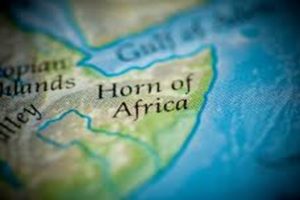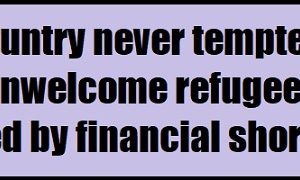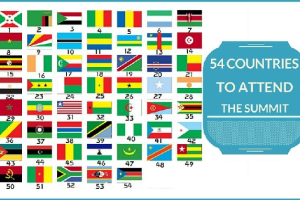BY YESUF ENDRIS
The political ocean in which the world is swimming has incorporated a lot of things as it is the basis to drive any wheel in every country well since the philosophy of social contract emerged.
Once the political trajectory of a given nation keeps balance, at least to the acceptable degree, the whole social, economic, political, and cultural and other related aspects could be closer to the equilibrium point.
In this decisive move to create a well-structured nation state, the role women can play in passing verdicts is witnessed minimal. It is easy to cite what is happening in our country.
In the history of Ethiopia, the contribution of women in political leadership is inscribed with notable events even though the portion of female and male politicians is criticized as imbalance that males were dominantly controlled the politics for a long period of time.
Though there are improvements in this regard, a lot remains to be done to help women come at the forefront.
The political power of women in Ethiopia is growing and many women have been political candidates or appointees at present. Previous reports indicated that the portion of women politicians in Ethiopia’s Parliament was about three percent in 1991.
And recently it was reported that 38 percent of MPs are women; which is the highest number even compared with other countries in the African continent.
However, gender based violence and discriminations in political engagement are challenging the portion of women in political phenomenon, researches also indicated.
Mostly, gender based violence in politics has not been researched and accommodated so far as a result of misunderstanding that political engagement is considered as luxurious and needs to be assessed in the eyes of a male-dominated or patriarchal ideology. However, this mentality doesn’t have space in the contemporary world.
In fact, reports from different Civic Society Organizations (CSOs) working on Gender issues said that gender violence against women in politics is causing basic human rights and the violence by itself is legally seen as basic human rights violation.
And violence like sexual harassments is being committed on female political actors; it is thus considered as one of major global political challenges.
Consequently, international and national institutions working on empowering of women to end gender violence are taking Violence against Women in Election (VAWE) as a means to protect human rights in related to gender.
United Nations agency for women, UN women also has revealed that females are facing “myriad of challenges” in electoral processes and when they are exercising political power. In spite of this the participation of women in politics is also highly increasing as violations surge timely.
Ethiopian government has also reformed the gender balance in power particularly in higher positions. In the past two and half years, Ethiopian government has taken its own measure towards balancing the number of women and men in cabinets as half of the higher cabinets and senior governmental structures have been occupied with females.
And through time, women’s place in front of public podiums has registered rising progresses. The demand of female participants in political aspects has also got surge.
Previously, appointed women politicians were not able to exercise powers which has been considered as politically influential positions. Most of the appointed females were engaged in portfolios of social welfare authorities and other positions with less political influence.
Now days, higher positions like Presidency and security issue authorities are also being exercised by women. However researchers on gender based violence are reporting the raising of gender based violence and biases in politics thoughthe engagement of women in politics is surging timely.
Ahead of Ethiopia’s upcoming election, Ethiopian Human Right Commission with UN agency for Gender (UN Women) discussed Ethiopia’s trend in election in related with gender based biases.
During the conference, representatives of political parties, government institutions, CSOs and other stakeholders discussed the way to address gender based violence particularly in electoral process.
Furthermore, assessment researches were presented by human right fighters. And it was indicated that large number of women politicians are suffering from either sexual harassment or gender bias despite the fact that enabling situations are developing timely.
During the opening of discussion, Mesret Mamo, Women and Children Affairs commissioner at Ethiopian Human Right Commission remarked that gender violation in political affairs is one of serious violation of human right. However she said that many of human rights based organizations are waged less focus to this issue.
“I have observed that many of violators offensively acting against women’s political engagement particularly on females with higher political power. Sexual harassment by using social media is becoming a common tool to make females to resign power; thus the government with cooperation of all concerned bodies should take sustainable measures so as to create enabling environment to women.”
In addition to this, international and local legal frameworks have declared that gender issues shall not be taken as a means to evaluate political excellence of individuals. But large numbers of violations are being practiced even by senior political actors, she said.
The electoral preparation for the upcoming General Election should comprise approaches to fight against violations during the election process, she recommended.
As to her, the commission is working with political parties to ensure gender equality in parties. “We have assessed that some politicians including seniors ones are not willing to pull or hire females in key positions.
Hence many of political parties are run dominantly by men.”Furthermore, the commission is working with legislators, curriculum designers, lawyers, and other gender based institutions.
She further noted that her department is working closely with political parties and other stakeholders in the wake of protecting gender based right violations.
Saba G/Medihin is senior human right activist and Executive Director of Network of Ethiopian Women Associations. She has also presented her assessment of women’s participation, challenges and opportunities in Ethiopia.
As to her, initiatives taken by the government and CSOs have contributed optimistic progresses in making the political atmosphere relatively suitable for females. But she said that additional meaningful measures are needed to be adopted yet.
“I know code of conducts regarding gender issues is unused in many of political parties. And many of the parties, intentionally or unknowingly are dominated by males,” she said.
Talking opportunities, she remembered that 50 percent of higher cabinets are women and numbers of international conventions to avoid gender bias and these approaches have been adopted since the government started reforms. Thus it could succeed with great number of women in power.
Meanwhile, negative mentality against women’s participation in politics which is still challenging the whole aspect of national politics as well as national development needs to be redressed, she noted.
In her view, preventive measures against gender based violence should be strengthened as we are now at the time of electoral preparation.
Rakeb Mesele, Advior of strategic affairs in Ethiopian Human Rights Commission on her part also said that huge numbers of women politicians are encountering glitches to engage in active political issues while seniors are being pushed to resign power.
“In due course of conducting the general election, gender based violence could be high. All parties involving in support of the election should focus on evaluating and monitoring gender based attacks since it is a serious violation of human rights,” she urged.
According to Rebka, women politicians have a chance of facing violations three times greater than of men. Not only are the candidates, women voters also influenced by either the tradition or absence of democratic administration to get out of political engagement.
Serious crimes including militia attacks and sexual harassment should be considered and preparations to halt such attacks are expected to be adopted during the election process, she said.
Conducting election devoid of woman harassment and any form of women rights violations would add value to its fairness, democratic conditions other related aspects.
The Ethiopian herald December 26/2020





